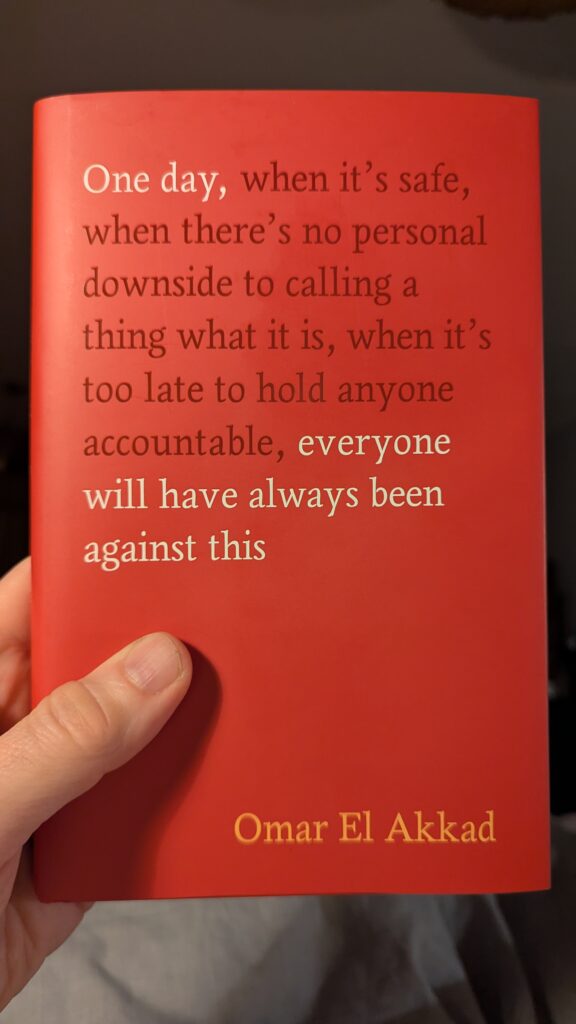
This is one of those incredibly powerful books that makes you feel small, insignificant, guilty; it is riddled with stark reminders of the heinous and immoral acts taking place in Palestine, and how we in the West are all largely complicit. It doesn’t provide answers or solutions, it instead demands your own response, your personal emotional conclusion.
The writing is brilliant, weaving a lifetime of observation from an Egyptian immigrant’s perspective of the broken and hypocritical West, with the acts of genocide taking place in the Middle East.
El Akkad is justifiably provocative (and prescient) on the US voters’ choice at the ballot box:
Suddenly, an otherwise very persuasive argument takes on a different meaning: “Vote for the liberal though he harms you because the conservative will harm you more” starts to sound a lot like “Vote for the liberal though he harms you because the conservative might harm me, too.
All this rings true in the era of Trump 2.0, which El Akkad sums up in such a succinct and terrifying way. And yet his point is that Western governments have always acted like this:
It has been, for as long as I can remember, the memory that anchors my overarching view of political malice: an ephemeral relationship with both law and principle. Rules, conventions, morals, reality itself: all exist so long as their existence is convenient to the preservation of power. Otherwise, they, like all else, are expendable.
He is brutally pointed on the Western failure to act beyond its own self-interest:
It is not without reason that the most powerful nations on earth won’t intervene to stop a genocide but will happily bomb one of the poorest countries on the planet to keep a shipping lane open.
And turns that back on the reader, challenging each and everyone of us as to our compliance, our contribution, and our acceptance of the eternal atrocities commited by our nations:
But when, after decades of such thinking, decades of respectful prodding, the condition one arrives at is reticent acceptance of genocide is it not at least worth considering that you are not changing the system nearly as much as the system is changing you?
It’s a brilliant, depressing, moving, beautiful piece of writing.
